Jessica Knauss's Blog, page 41
December 26, 2012
The Second Annual Knauss Awards for Excellence in Publishing
There was a lot of excellent writing published in 2012. Competition in every category was ferocious! After much pondering and even more reading, here are the finest books I encountered in 2012.
Best Fiction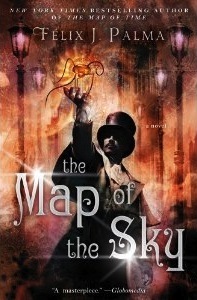
I don't think this book is for everyone, but in the end, nothing swept me away like this one, or made me so much want to start translating seriously again. Go, Spanish authors! Original review
Best Non-Fiction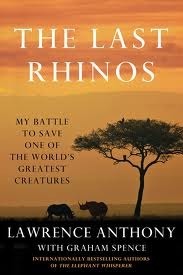
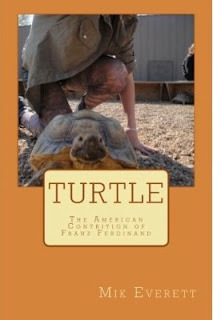
This category was especially tricky because I read two truly great non-fiction books that are excellent for completely different reasons. The Last Rhinos brings a little-known, preventable tragedy to the public in a compelling, detail-rich narrative. Original review Turtle is astonishing in every conceivable way and stretches the boundaries of fiction and non-fiction. Original review So they both get an honor.
Best Book I Edited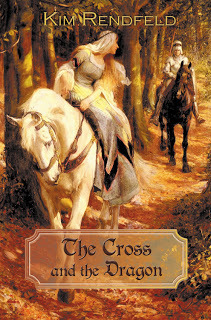
I edited many great novels this year. In the end, The Cross and the Dragon gets the prize because I "got it" the most. It's the most like my own novel, and the author made the job easy both because she had already done a lot of polishing and because she wanted as much as I did for it to be right. And it is, so right! Original review
Did the pink-to-orange tint of the covers of all these books sway me at all? Coincidences happen!
Best Fiction

I don't think this book is for everyone, but in the end, nothing swept me away like this one, or made me so much want to start translating seriously again. Go, Spanish authors! Original review
Best Non-Fiction


This category was especially tricky because I read two truly great non-fiction books that are excellent for completely different reasons. The Last Rhinos brings a little-known, preventable tragedy to the public in a compelling, detail-rich narrative. Original review Turtle is astonishing in every conceivable way and stretches the boundaries of fiction and non-fiction. Original review So they both get an honor.
Best Book I Edited

I edited many great novels this year. In the end, The Cross and the Dragon gets the prize because I "got it" the most. It's the most like my own novel, and the author made the job easy both because she had already done a lot of polishing and because she wanted as much as I did for it to be right. And it is, so right! Original review
Did the pink-to-orange tint of the covers of all these books sway me at all? Coincidences happen!
Published on December 26, 2012 00:01
December 19, 2012
I'm Better Than Jane Austen...
In what universe does this happen?

You eyes aren't deceiving you. According to this list, two of my books are better than Jane Austen, Harper Lee, Charlotte Bronte, and Margaret Atwood. Even more strange, the star ratings agree that my books belong among their ranks.
My humility doesn't permit this kind of comparison. But this is exactly the kind of thing that can happen in the bizarre universe of social media. I expressed some bafflement at ranking above Jane Austen, and Facebook friend and very fine writer Chris Shields commented, "Jessica, she had her time. Now it's yours. Way to go." That thought neatly does away with my natural inclination toward self-effacement, which probably holds me back in this competitive literary market.
But, even taking the dead ladies off the list, I'm still up against Margaret Atwood, and in any normal situation I would never assert that my books are in any way better than hers. So we're back to the idea of the real world, where such comparison would never take place, and social media, where, it seems, anything is possible.
I hope this list will bring some much-needed attention to Rhinoceros Dreams and Tree/House . My ranking above these other authors is in no way meant as disrespect.
In other news, many of my books are now available with additional descriptions and reviews on askdavid.com. It's a great site to find new authors to read!
The Abencerraje
Dusk Before Dawn
Sail to Italy and Sail From Italy
Tree/House

You eyes aren't deceiving you. According to this list, two of my books are better than Jane Austen, Harper Lee, Charlotte Bronte, and Margaret Atwood. Even more strange, the star ratings agree that my books belong among their ranks.
My humility doesn't permit this kind of comparison. But this is exactly the kind of thing that can happen in the bizarre universe of social media. I expressed some bafflement at ranking above Jane Austen, and Facebook friend and very fine writer Chris Shields commented, "Jessica, she had her time. Now it's yours. Way to go." That thought neatly does away with my natural inclination toward self-effacement, which probably holds me back in this competitive literary market.
But, even taking the dead ladies off the list, I'm still up against Margaret Atwood, and in any normal situation I would never assert that my books are in any way better than hers. So we're back to the idea of the real world, where such comparison would never take place, and social media, where, it seems, anything is possible.
I hope this list will bring some much-needed attention to Rhinoceros Dreams and Tree/House . My ranking above these other authors is in no way meant as disrespect.
In other news, many of my books are now available with additional descriptions and reviews on askdavid.com. It's a great site to find new authors to read!
The Abencerraje
Dusk Before Dawn
Sail to Italy and Sail From Italy
Tree/House
Published on December 19, 2012 00:38
December 17, 2012
The Margaret Mitchell House
It's the post you've been waiting for! All about the site where Margaret Mitchell wrote 75% of the first draft of Gone with the Wind. It was the last place my husband and I visited before we left Atlanta. I couldn't leave behind such a monument to writerly moxie! Although its themes are surrounded by controversy, it's hard to knock the quality of the writing in the original novel.
 The house has been restored to what Margaret Mitchell and her husband might have wished it looked like when they were living there. This is what would have been the front. You can kind of get a sense of the way this historic building sits among business high-rises, all by itself now.
The house has been restored to what Margaret Mitchell and her husband might have wished it looked like when they were living there. This is what would have been the front. You can kind of get a sense of the way this historic building sits among business high-rises, all by itself now.
 Margaret Mitchell and her husband did not occupy the entire house, although the building has been given over to Gone with the Wind now. They lived in a really small one-bedroom apartment on the first floor. You can see the sitting room windows on the left in this view, the back of the house.
Margaret Mitchell and her husband did not occupy the entire house, although the building has been given over to Gone with the Wind now. They lived in a really small one-bedroom apartment on the first floor. You can see the sitting room windows on the left in this view, the back of the house.
 Here is the door they used to get in and out, complete with mailboxes. There was a back door through the kitchenette. Margaret was a reporter for the local paper, but when she broke her ankle, she became housebound. When her husband got tired of ferrying books back and forth from the library, he told Margaret she'd read every book they had, and she should write her own.
Here is the door they used to get in and out, complete with mailboxes. There was a back door through the kitchenette. Margaret was a reporter for the local paper, but when she broke her ankle, she became housebound. When her husband got tired of ferrying books back and forth from the library, he told Margaret she'd read every book they had, and she should write her own.
 And she did. The best light in the house came in though the windows you can see in the other picture. They set a typewriter on a tiny table and she wrote and wrote, using her journalism training to start at the end and include lots of realistic details.
And she did. The best light in the house came in though the windows you can see in the other picture. They set a typewriter on a tiny table and she wrote and wrote, using her journalism training to start at the end and include lots of realistic details.
The furnishings are from the period, not related to Margaret Mitchell. She and her husband would have had mismatched hand-me-downs and thrift store finds. I was deeply moved to see this space and its similarities to the spaces where I've written over the past two years. It shows that all you need to finish a monumental novel is training and discipline. Quiet determination and a passion for your subject. And enough support from your loved ones to print the whole thing out and have it tower over you when you've put it into hundreds of manila envelopes.
Best writer tourism destination. Ever.

 The house has been restored to what Margaret Mitchell and her husband might have wished it looked like when they were living there. This is what would have been the front. You can kind of get a sense of the way this historic building sits among business high-rises, all by itself now.
The house has been restored to what Margaret Mitchell and her husband might have wished it looked like when they were living there. This is what would have been the front. You can kind of get a sense of the way this historic building sits among business high-rises, all by itself now. Margaret Mitchell and her husband did not occupy the entire house, although the building has been given over to Gone with the Wind now. They lived in a really small one-bedroom apartment on the first floor. You can see the sitting room windows on the left in this view, the back of the house.
Margaret Mitchell and her husband did not occupy the entire house, although the building has been given over to Gone with the Wind now. They lived in a really small one-bedroom apartment on the first floor. You can see the sitting room windows on the left in this view, the back of the house. Here is the door they used to get in and out, complete with mailboxes. There was a back door through the kitchenette. Margaret was a reporter for the local paper, but when she broke her ankle, she became housebound. When her husband got tired of ferrying books back and forth from the library, he told Margaret she'd read every book they had, and she should write her own.
Here is the door they used to get in and out, complete with mailboxes. There was a back door through the kitchenette. Margaret was a reporter for the local paper, but when she broke her ankle, she became housebound. When her husband got tired of ferrying books back and forth from the library, he told Margaret she'd read every book they had, and she should write her own. And she did. The best light in the house came in though the windows you can see in the other picture. They set a typewriter on a tiny table and she wrote and wrote, using her journalism training to start at the end and include lots of realistic details.
And she did. The best light in the house came in though the windows you can see in the other picture. They set a typewriter on a tiny table and she wrote and wrote, using her journalism training to start at the end and include lots of realistic details.The furnishings are from the period, not related to Margaret Mitchell. She and her husband would have had mismatched hand-me-downs and thrift store finds. I was deeply moved to see this space and its similarities to the spaces where I've written over the past two years. It shows that all you need to finish a monumental novel is training and discipline. Quiet determination and a passion for your subject. And enough support from your loved ones to print the whole thing out and have it tower over you when you've put it into hundreds of manila envelopes.
Best writer tourism destination. Ever.
Published on December 17, 2012 00:19
December 12, 2012
The Invisible Infanta by Elizabeth Toner
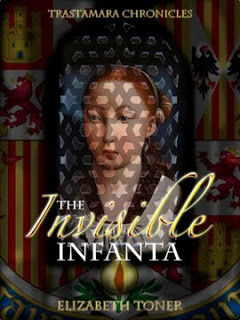 Her sisters and brother were an ill-fated Queen of Portugal, Henry VIII's first wife, the heir to the throne of Spain, and the notoriously loca Juana, who would become Queen of Spain when all her siblings met other fates. But Ferdinand and Isabella had another royal daughter, an infanta, about whom one hardly ever hears mention. Her name is María and this the story of her life before she left the Castilian court to be married.
Her sisters and brother were an ill-fated Queen of Portugal, Henry VIII's first wife, the heir to the throne of Spain, and the notoriously loca Juana, who would become Queen of Spain when all her siblings met other fates. But Ferdinand and Isabella had another royal daughter, an infanta, about whom one hardly ever hears mention. Her name is María and this the story of her life before she left the Castilian court to be married.It's not easy to write about such a complicated time period, with so much complexity at every level. Most books about this infanta's mother take on too much and become a soup of places and dates without a lot of narrative thrust, so I was pleased to see that this novel focuses its scope. There are still some moments of summary, but overall the spotlight on a single actor in the drama serves the plot well.
The story further focuses on the infanta's emotional involvement with a servant, the only one of the Taino people who survived for any length of time after Columbus brought them to Spain after his first voyage. He happens to be a boy about María's age, and has been assigned the name Juan de Castilla, strikingly similar to María's brother. The friendship and love that develops between these two outcasts is believable and made me think about how history would have been different if Spain had taken the diplomatic route to alliances in the New World, and, for example, married one of the infantas off to a Taino grandee.
There are a few historical detail errors here, but nothing that will stick out to the casual reader, and the many well-observed moments and politics more than make up for them. The evocative descriptions of the palaces in Sevilla and Granada made me feel I was right there with María. I also particularly enjoyed the musings about the meaning of freedom at the very end of the book. It is very short, but perhaps we'll see more of María and her marriage in the next books in the Trastamara Chronicles. Even without that possibility, The Invisible Infanta is easily digested because of its length and its comfortable style.
The Invisible Infanta is available on Kindle.
Published on December 12, 2012 00:24
December 10, 2012
Interview with Multi-Lingual Author Marta Merajver-Kurlat
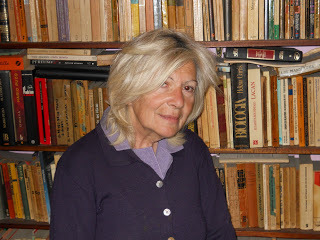
I'm very excited to to have Marta Merajver-Kurlat on my blog today. She is a world-traveling, widely-read author who does what many only dream of. She writes in not one language, but two: Spanish and English.
JK: How did you come to write in both languages? Do you draw from the literature of both traditions?
MMK: I draw from the world’s literature, not just from these two traditions. I read in Spanish, English, Italian, French, German, and Portuguese. When it comes to Russian, Japanese, Hungarian, or other literatures, I prefer to read English translations. Writing in both languages is second nature to me. The interesting thing is that, in full agreement with Saussure, I believe that language shapes thought rather than the other way about, so my style accompanies the language of choice.
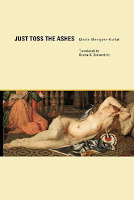
JK: I find that to be true, too. Did your background growing up encourage your international focus?
MMK: I was born and raised in Buenos Aires, Argentina. After graduating as a translator, I spent a couple of years studying and working in Europe and the U.S. Having earned a degree in English Language and Literature, I traveled extensively until I decided to start a teaching career in my city of origin. When my son began primary school, I enrolled at the School of Psychology, University of Buenos Aires, and was soon engulfed by the psychoanalytic bias that was then predominant. My interests and studies are multifaceted: I have a passion for myth and history among other things and, already retired from institutional teaching and teacher training activities, I conduct private seminars and courses for lovers of literature and for psychoanalytic institutions.
JK: What kinds of books do you write, and who are they for?
 MMK: I have published fiction and non-fiction. My novels are intended for an audience interested in the darker aspects of human nature. My non-fiction includes a series called Bibliotreatment, which targets any John, Dick, and Harry in need of practical solutions to psychological problems. Although it might be called a self-help series, the radical difference between these books and others of the same genre lies in the fact that I do not propose perfect bliss through hackneyed recipes. Thus it would be fair to say that Bibliotreatment seeks an intelligent audience willing to find out what is ailing them and unafraid to come across deep psychic wounds that need healing.
MMK: I have published fiction and non-fiction. My novels are intended for an audience interested in the darker aspects of human nature. My non-fiction includes a series called Bibliotreatment, which targets any John, Dick, and Harry in need of practical solutions to psychological problems. Although it might be called a self-help series, the radical difference between these books and others of the same genre lies in the fact that I do not propose perfect bliss through hackneyed recipes. Thus it would be fair to say that Bibliotreatment seeks an intelligent audience willing to find out what is ailing them and unafraid to come across deep psychic wounds that need healing.JK: Does this interest in psychology extend to your fiction?
MMK: All of my fiction is based on real life. Just Toss the Ashes, the English version of Gracias por la muerte, deals with suicide. Los gloriosos sesenta y después tells the story of a multinational chamber orchestra touring the world under the sponsorship of an Argentinian military dictatorship. My point in this book was to show that not every youngster in the 1960s was either a hippy or a guerrilla. There were millions of others involved in living, learning, dreaming, and pursuing goals. No one seems to have written about them, so I took the challenge. El tramo final narrates life in an old people’s home, showing the inter and intrarelationships among inmates, their families, and their caregivers. In each case, the atmosphere and language are unique and suited to the story. The characters, though fictionalized, are based on real people.
JK: The dreaded question for every author: What is your favorite book?
MMK: This is a tough question. I have lots of favorite books, but if I must choose one, the answer is definitely Tolkien’s Silmarillion. Not that it has influenced my writing, since I have not created a cosmogony… yet.
JK: Ah, so we have something to look forward to! What else influences your work?
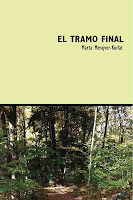 MMK: I guess that, in an unconscious manner, every book I’ve read influences my work in some way or other. My own life experience is a strong influence as well. Early exposure to so many different cultures, lifestyles, and experiences has undoubtedly marked me in a very special way.
MMK: I guess that, in an unconscious manner, every book I’ve read influences my work in some way or other. My own life experience is a strong influence as well. Early exposure to so many different cultures, lifestyles, and experiences has undoubtedly marked me in a very special way.JK: In general, what is your inspiration? What was the specific inspiration for your most recent project?
MMK: My inspiration is the world around me, a world that may prove so unlikely that I sometimes discard ideas for fear that they might sound overly artificial. Reality beats fiction more often than one is ready to admit. My most recent project, in fact, a work in progress, is a novel about a woman and the men in her life. It was specifically inspired by the gender issues that are so much discussed nowadays, and by my perception that not all feminists practice what they preach.
JK: Do you have a favorite word?
MMK: I do, but it’s not a word I use often in my writing: compassion. I expect this word to come to the reader’s mind naturally, through a process of empathy with the story and characters.
JK: How do you use language to differentiate your characters?
MMK: Like real people, my characters have an idiolect, to which I stick so that they are recognizable even when they are not named. Regarding the settings, because I’m well acquainted with the ones I choose, I use descriptive language sparsely, so as to provide a clear picture with the utmost economy. It’s in the narrative and descriptive parts that I sometimes indulge in metaphor, metonymy, or other tropes. But I hate linguistic “fluff,” so I don’t inflict it on my readers.
JK: How much time a day do you devote to fiction writing? What is your work area like? Do you have any methods that might seem unusual or inspiring to other writers?
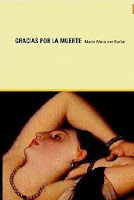 MMK: The time I devote to my fiction is rather erratic. When I’m not involved in translation projects, I am glued to my computer and don’t keep count of the hours as long as the writing flows. But I also write in snatches, sitting at a café in the sun, between classes, whenever something comes to my mind and I don’t want to lose it. This shows that I’m not methodic. If I may inspire other writers, it will be through the finished product, for my writing process is rather chaotic!
MMK: The time I devote to my fiction is rather erratic. When I’m not involved in translation projects, I am glued to my computer and don’t keep count of the hours as long as the writing flows. But I also write in snatches, sitting at a café in the sun, between classes, whenever something comes to my mind and I don’t want to lose it. This shows that I’m not methodic. If I may inspire other writers, it will be through the finished product, for my writing process is rather chaotic!JK: When and why did you get started writing? What characteristics from your first efforts survive today?
MMK: I started writing in my teens, but it was a game then, although my mother, an extraordinary writer herself, encouraged me to take it seriously. The reason was an attraction to language as I saw it deployed in the books I read and in my mother’s works. I found that the written word was so much more forceful than verbal exchanges. I took it seriously in my early thirties, when I published a series of children’s stories that my husband and I devised to amuse our child. I never stopped, but when my publisher was closed down by one of our military dictatorships, I made no further efforts to publish until 2005, when Just Toss the Ashes was finished. I’d say that the only characteristic that survived was the passion.
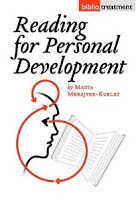 JK: What kind of feedback do you get? Are your family and friends supportive?
JK: What kind of feedback do you get? Are your family and friends supportive?MMK: Very positive feedback, particularly from my publisher, unknown readers who write to me, and colleagues from my writing groups. I don’t think I have a fan base, probably because I have done practically nothing in that respect. Until very recently, I didn’t have a website, never visited my FB page, and had not requested an Amazon author page. I must thank my colleagues for insisting that I needed visibility. They were right, of course, but it took a while to overcome my resistance. My very small family is extremely supportive, and so are my friends. In all truth, these are my fans.
JK: Thank you so much for sharing your work with us today.
Find out more about Marta's books at her website and blog.
Or check out her latest book, Reading for Personal Development .
Published on December 10, 2012 00:31
December 7, 2012
ASMSG Page is Live!

I belong to a sweet little (well, big) group of independent authors. My author page has been up on the website for some time now, but the newest feature is that all of my books can be seen lined up and stacked neatly as you scroll down. Pretty impressive, if I say so myself. Take a look and enjoy!
And if you buy any of the books after clicking on those links, you'll be helping a great group of authors pursue their dreams of completing and publishing books and building an enthusiastic fan base!
Remember, authors don't exist without readers!
On Monday: an interview with fascinating author Marta Merajver. Not to be missed.
Published on December 07, 2012 00:40
December 5, 2012
Review: Shifted Perspective by J. Bridger
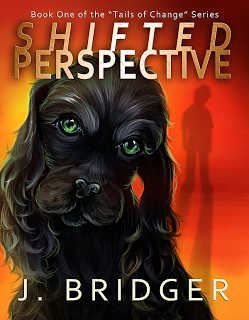
I hope everyone went out and bought Shifted Perspective when it came out, rather than waiting for me to post a review. Belated as it is...
I was first attracted to this story because, unlike most fantasies in which people can change into animals, this one is told from the perspective of someone who is not the top dog -- literally. Caleb is a late bloomer who only discovers his shifting ability in his last year of high school. Such a special power doesn't thrill him because he doesn't turn into a cool werewolf or a panther or an eagle or something fierce, but a Cocker Spaniel. It turns out that his shifter relatives also look down on him. Caleb has to undergo initiations, say goodbye to his purely human friends and even his human dad, and come to terms with his life being nothing like he planned when a series of murders means he must risk everything -- even his life.
The story comes in three parts: the discovery, the initiation, and the murder mystery. I felt the structure was a little odd, but by the end I realized it was necessary in order to set up the other books to come in the series. The resolution of the mystery turns out to be an interesting story about pushing the boundaries of what's allowed for these powerful shifters in the human world.
If you love dogs, this is the series for you. The culture of the shifters, with its ranks and its initiation methods, is based on the reality of dog dynamics. Caleb doesn't fit in to the brutality of a system dreamed up by werewolves, and even the most sensitive female readers will sympathize with such a sweet, earnest boy.
Published on December 05, 2012 00:52
December 3, 2012
Finished... with the First Draft
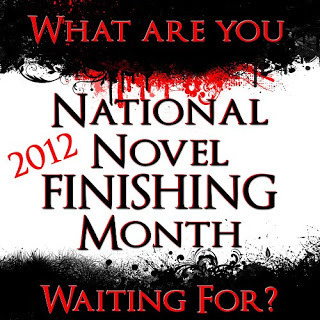
So, did I meet the challenge presented by National Novel Finishing Month?
Yes, I did.
I can't believe it. I never really imagined a world in which I was not writing this draft of The Seven Noble Knights of Lara. Every time I used to go to sleep, I would think about a character or a scene so that I could process it overnight and have a few good words or sentences for that purpose the following morning. Now I don't know how to fall asleep!
The current draft totals 131,105 words, by far the longest thing I have ever written. It's twice as long as my doctoral dissertation! This month alone I wrote 28,600 words, hands down the most I have ever written in a single month.
There at the end, I was having a lot of trouble transitioning from pounding away at the keyboard with my head in the fictional world into a nice evening at home with my husband, and I feel I've neglected him terribly. On the Tuesday before I finished, he got a fairly deep, bleeding cut on his thumb. I should have washed the cut with antiseptic, put pain reliever and a Band-Aid on such a grave wound, not because he can't do it, but because it would have been kind and supportive. But I didn't! That dear blood wasn't nearly as much as the metaphorical amounts coming out in the study during the day and I was far too self-absorbed to take anyone else's pain into account.
I hope none of my other fine novels will be this wrenching to finish.
I was grumpy after I placed the last period, on top of all the other abuses my husband suffered, and I think it's the authorial version of post-partum depression. This thing I'd just given birth to seemed like a horrible twisted monster, and yet I missed it percolating in my head. I've still got to do a lot of research, revising, and polishing, and who knows what else, so it's not like I have to completely let go of this thing yet, and I can't decide if that cheers me up or not!
I snapped this picture of where I worked minutes before I composed the last paragraphs.

It's a cheap card table we bought in Tucson when we had no furniture and no money, but on it rests everything I needed: a window to cast natural light on the subject; a chair I upholstered with my dad and needs already to be re-upholstered; an old lamp from my grandmother, who passed away in 2002; a picture of my critique group, who believes in me; a phone to get calls from my husband, who also believes in me; the book with the original texts upon which I based my novel; a chapter outline; a picture of the place where Margaret Mitchell wrote about half of Gone with the Wind; a bottle of water; a heart-shaped frame with a picture of Alfonso X el Sabio, my hero and the one who had the surviving texts written down; and to the right, left, and behind the laptop (no internet connection) as well as on the floor in a bag leaning on the table leg, notes. Some wonderful books about the middle ages inhabit the shelves you can see in the picture, and you can't see the music that I had playing, various instrumental pieces from as close to the tenth century as I could find. I had a pretty similar setup in Georgia with a gorgeous tree-filled view, but I started the novel in Tucson with the laptop literally in my lap and only some of the notes to guide me. It's been a long, strange trip.
But I'm hoping to reintegrate into society now. Book reviews, interviews, and history tidbits coming your way soon! As well as the occasional update on The Seven Noble Knights of Lara.
Published on December 03, 2012 00:43
November 28, 2012
A Poetic Present
Out of nowhere -- and this is especially surprising because it has to do with a poetry book, and I thought no one reads poetry anymore -- Dusk Before Dawn got this stellar, utterly unsolicited review.

It sure makes me feel appreciated as a writer. It's about the best holiday gift I could get, as I come out of the dark cave in which I've been furiously writing all month.
So, as a reminder, that's the second surprisingly positive review for Dusk Before Dawn, the other being on Goodreads here.
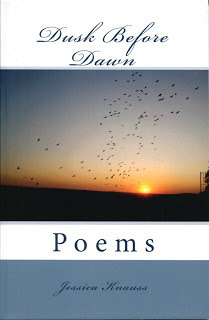 Find it at:
Find it at:
Amazon
Nook
Kobo


It sure makes me feel appreciated as a writer. It's about the best holiday gift I could get, as I come out of the dark cave in which I've been furiously writing all month.
So, as a reminder, that's the second surprisingly positive review for Dusk Before Dawn, the other being on Goodreads here.
 Find it at:
Find it at:Amazon
Nook
Kobo
Published on November 28, 2012 00:41
November 25, 2012
Hard Work Ain't Pretty Until It's Done
In case you're wondering whether I'm still around, yes. I've been holed up, writing, writing, writing, to meet my goal of finishing The Seven Noble Knights of Lara before the end of the year. I'm close!
Luckily, I'm online enough to catch gems of articles like this one, which illustrates that although no author's routine is the same as another's, they all involve discipline. That's right, most people don't just wake up one day with a finished first draft. Read about the routines of Ray Bradbury, Joan Didion, Jack Kerouac, E. B. White, and so many others here, courtesy of Brain Pickings.
"A writer who waits for ideal conditions under which to work will die without putting a word on paper." E. B. White.
Luckily, I'm online enough to catch gems of articles like this one, which illustrates that although no author's routine is the same as another's, they all involve discipline. That's right, most people don't just wake up one day with a finished first draft. Read about the routines of Ray Bradbury, Joan Didion, Jack Kerouac, E. B. White, and so many others here, courtesy of Brain Pickings.
"A writer who waits for ideal conditions under which to work will die without putting a word on paper." E. B. White.
Published on November 25, 2012 06:03



